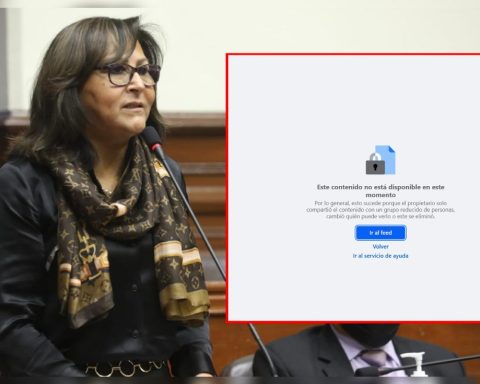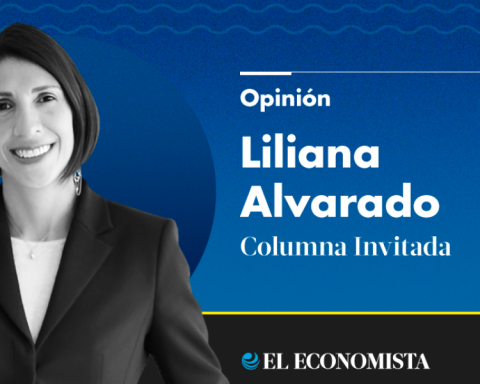Next Monday, November 7, in the Hall of the Chamber of Deputies, the dilemma that has monopolized the corridor conversations between parliamentarians and that is related to the possible arrival of Karol Cariola (PC) to the presidency of the Corporation, as established in an agreement agreed last March by the factions of the ruling party, DC, PDG and independents.
The so-called “governance agreement” signed seven months ago –one day before the installation ceremony of the new legislators for the period between 2022 and 2026 – promoted the appointment of six boards, with periods of eight months for each one, headed by deputies and deputies from the different benches that were part of the negotiation. By achieving a majority, right-wing sectors such as Chile Vamos and the Republican Party were excluded.
One of the architects of that dialogue developed last March, details that both the ruling party and the opposition offered their respective proposals for an administrative agreement to the People’s Party (PDG), at that time an emerging political force that took advantage of the momentum of the candidacy presidential election of its leader and founder, the economist Franco Parisi. Understanding that his nine votes were attractive, both for the right and for the government coalitions, the PDG allowed himself to be loved and delegated those conversations to a negotiating table, which finally considered the official proposal more attractive, which even offered him the presidency of a commission – a role currently played by deputy Yovana Ahumada in the Mining and Energy Commission.
In this way, the conditions warranted that the agreement be fulfilled, hoping that the Chamber would accept the resignation of the current table chaired by Raúl Soto (PPD), leaving in his place the current president of the Constitution Commission, Karol Cariola, who She also served as spokesperson for the official Approve command in the unsuccessful campaign prior to the exit constitutional plebiscite. Both roles, particularly his role in the failure of the bill to withdraw funds from the AFPs, and in addition to his place in the front line of Approve x Chile, are the arguments put forward by the right to prevent the conclusion of said agreement. Reasons that were heard by a majority sector of the PDG, which would be willing to break with the pact signed at the beginning of the legislative period, to put the signature on a hypothetical new agreement with Chile Vamos.
From the ruling party they warn that it would be a risky move for a party like the PDG, which precisely seeks to deliver signs of differentiation with respect to traditional politics. In addition, they admit in the benches of Approve Dignidad that the rupture of this agreement would be a “serious event”, causing “irreparable damage to the governability of the Chamber.” This, understanding that the pact signed in March not only involved the Board of the Corporation, but all the commissions with their respective presidencies, during each of the six eight-month periods.
Within the parliamentary benches that defend compliance with this treaty, they point out that from the beginning it was made explicit that it was a purely administrative agreement, which determined the design and composition of the table and the presidency of the 27 legislative commissions. According to details from the ruling party, if the agreement falls, the entire design of the commissions will succumb with it, generating a “chaotic” situation, which could have repercussions on the already complex scenario of processing the bills from La Moneda .
In this regard, the head of the bench of deputies and deputies of the PC, Boris Barrera, believes that beyond the speculations about a possible new pact cooked up between the right, the PDG and some independent parliamentarians, according to his calculations, said sector still it would remain to get more than 10 votes, while the ruling party only has to convince one or two deputies to ensure that the governability agreement is respected.
On this scenario, Barrera assured that “the right today is far away in the votes, and it is deceiving those who tell them that it is going to assure commissions, where it does not have the necessary majorities. It is a deception, and I think that what is sought is install a climate of insecurity so that these undecided groups fall back to the opposition (…) The only thing that the right can offer the PDG, in a possible new agreement, are presidencies in commissions that are not relevant, but in the commissions that we consider relevant –Treasury, Labor, Education, Constitution, Women and Gender Equity– and that were part of the agreement, no one is going to take the presidency from us”.
The role of the PDG and the official urgency to save the agreement
Negotiations within the National Congress have been intense in recent weeks. The government has instructed the Approve Dignity and Democratic Socialism parties to accelerate the pace of dialogue with the groups that made up the agreement signed on March 10, especially with the PDG and the DC, both groups that do not they belong to the ruling coalitions and that they could eventually be seduced by the right, which sees this as a unique opportunity, understanding that the fall of the governability agreement would allow them to lead both chambers. This, considering that in March 2023 Álvaro Elizalde (PS) will have to hand over his position in the presidency of the Senate to Juan Antonio Coloma (UDI).
According to what they believe within the ruling party, faced with the possibility of managing both bodies of the National Congress administratively, the right wing has tried to deploy a tactical design based on generating political arguments against the figure of Cariola, but that deep down would strip away a strategy that It goes beyond the name of the communist deputy and is related to the fact that, in the eventual scenario that Chile Vamos or the PDG stay with the head of the Chamber, in 2023, President Gabriel Boric could lose control of the agenda legislation in both corporations.
From the right, although they recognize that the People’s Party’s hesitant position regarding respecting or not the boisterous administrative agreement places them in a scenario of influence that they never imagined before the triumph of Rejection on September 4, they publicly ignore the existence of said conversations with the deputies who made up the pact, and who would be willing to renege on the commitment of their parties.
But the truth is that in the corridors of the Lower House this is an open secret, and in the coming days the negotiations will intensify, from one side and the other. While Chile Vamos will try to attract as many votes as possible, the government parties will continue to hold bilateral meetings with parliamentarians, understanding that so far they have met with all the deputies who were part of the March agreement, with the exception of Pamela Jiles and René Alinco. , because they have already expressed their opposition to Karol Cariola assuming the presidency of the Corporation.
Precisely from the opposition, the head of the bench of deputies and deputies of the UDI, Jorge Alessandri, explained that “Chile Vamos is not a majority in the Chamber of Deputies, therefore, it has to make alliances to reach that majority. Today there is an administrative and political pact, which has not been formally broken, where there have been talks, but it must be understood that two different instances must be promoted: first, at the end of October, where the resignation of the current table (Soto, Mix and Sepúlveda) and, later, on November 7 –if that resignation is accepted–, when the new table is voted on. Until now, the formal information says that the administrative pact of the leftist forces continues”, he added.
For his part, the pro-government deputy and president of Acción Humanista, Tomás Hirsch, said that the opposition has the right to present its candidacies and legitimately try to win the presidency of the table, but what in his opinion is inadmissible is that some parties are willing to break an agreed agreement, for political purposes of the right. “When someone’s teeth grow and the ambition of being able to have a position that was not contemplated comes over them, they will always have arguments at hand, and in this case the arguments put forward against Karol Cariola, for his role in the command of the I approve or in the Constitution Commission, they correspond to unacceptable vetoes”, pointed out the parliamentarian.
Finally, the decision will be made in the coming weeks, and the truth is that the controversy involves something that goes far beyond the name of Deputy Cariola, and that is the risk that the Government will lose a seat that will be vital importance in advancing its flagging legislative agenda. In fact, from La Moneda they understand it that way, and that is why they have called on their benches to intensify the talks, to prevent the right from managing to attract the necessary votes to create a new agreement that leaves the presidency of the Chamber in their hands, thereby causing a chaotic situation in the governance of the Corporation. It is, therefore, a decisive discussion that is related to the weakening of the ruling party and the empowerment of the opposition, which raises the banner of the triumph of Rejection and seeks to continue obtaining positions of power.


















